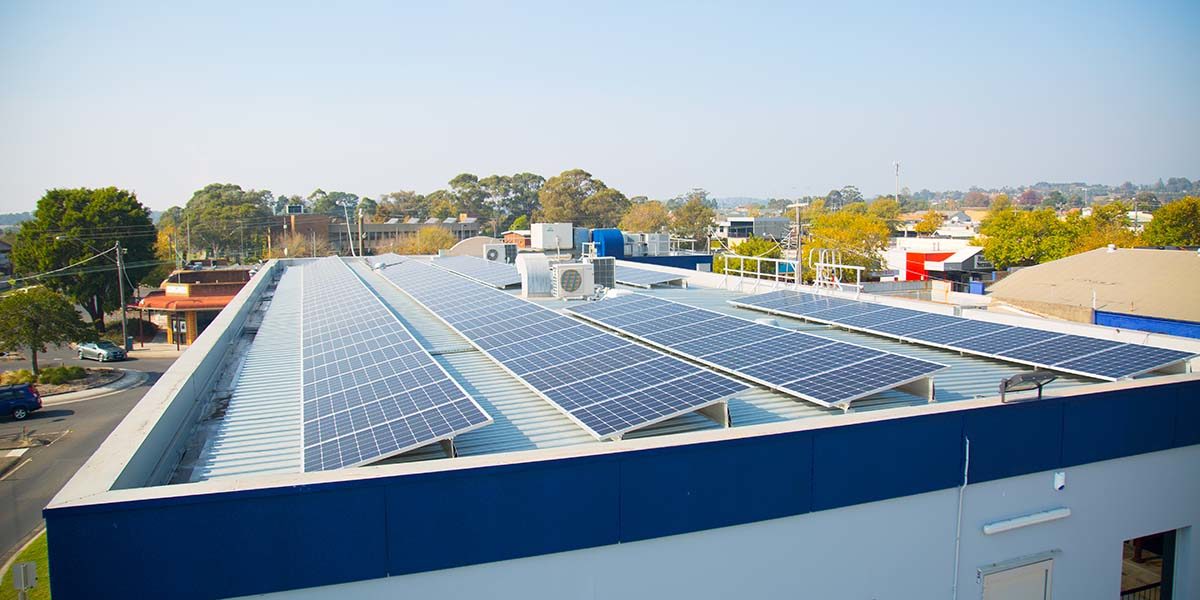In response to the spread of Covid-19, the Australian Capital Territory (ACT) Government is looking to create jobs, fast-track projects, and increase funding to keep local businesses going with the help of solar and storage.
The government has allocated $365,000 to undertake solar and sustainability upgrades on Common Ground Gungahlin, a multi-unit property in Kaleen, and a further 10 properties which are leased to community organizations, including draughtproofing and the installation of rooftop solar panels. These properties provide housing and support to ACT community members experiencing the greatest vulnerability.
“This project will deliver lower electricity costs for people in our community who are most in need of support, particularly during the coming winter when electricity bills often grow,” stated Minister for Housing and Suburban Development, Yvette Berry.
The project is part of the government’s economic package that is providing jobs for Canberrans while upgrading across the city and supporting the community. Minister for Climate Change and Sustainability Shane Rattenbury said the project will also assist the ACT in its goal of reducing greenhouse gas emissions to zero.
With the help of wind in NSW, South Australia, and Victoria, and solar located in and around the Canberra region, the ACT has delivered on its 100%-by-2020 renewable electricity target and reduced its greenhouse gas emissions by around 40% on the 1990 level. Its ultimate goal is to achieve zero net emissions by 2045.
Batteries for schools
Building on its commitment to do the heavy lifting for the community to reduce carbon emissions, the ACT government is installing battery storage at public schools. Two 40 kW systems will be installed in two ACT public schools and coupled with onsite rooftop PV.
One system will be deployed at Margaret Hendry School in the suburb of Taylor, which was the ACT’s first zero-emissions school, achieved in part through a 100kW rooftop PV system. Caroline Chisolm School in Chisholm will receive the second battery to couple it with its existing PV system.
Minister Rattenbury said the $100,000 energy storage project is a test case for the government. “The project will provide us with valuable data on how to optimize the use of batteries to meet energy needs at the various schools in the ACT,” he said. “We expect that by demonstrating the multiple benefits of solar battery storage systems, they will pave the way for future expansion of batteries across other ACT schools and the community more widely.”
In the ACT, every new school is built with attention given to sustainability, while older buildings are being upgraded in various ways including with rooftop solar. Battery installations at schools appear to be the next big thing.
“In 2018 I asked the Education Directorate to begin looking at how solar batteries could be incorporated into our efforts,” Minister Berry said. “Approximately $850,000 has been invested since then to expand solar in schools in preparation for batteries, and a further $250,000 will be invested to boost solar panel installations on new schools.”
This content is protected by copyright and may not be reused. If you want to cooperate with us and would like to reuse some of our content, please contact: editors@pv-magazine.com.









By submitting this form you agree to pv magazine using your data for the purposes of publishing your comment.
Your personal data will only be disclosed or otherwise transmitted to third parties for the purposes of spam filtering or if this is necessary for technical maintenance of the website. Any other transfer to third parties will not take place unless this is justified on the basis of applicable data protection regulations or if pv magazine is legally obliged to do so.
You may revoke this consent at any time with effect for the future, in which case your personal data will be deleted immediately. Otherwise, your data will be deleted if pv magazine has processed your request or the purpose of data storage is fulfilled.
Further information on data privacy can be found in our Data Protection Policy.